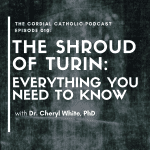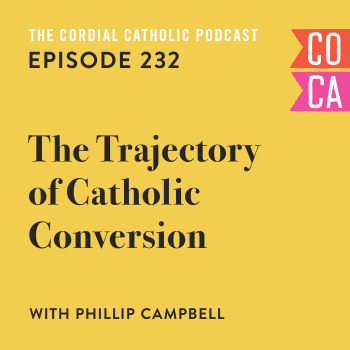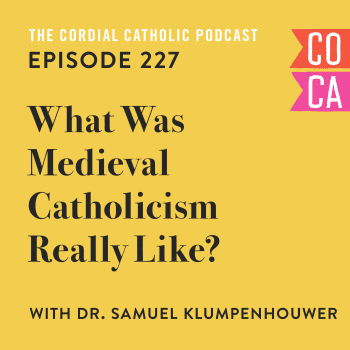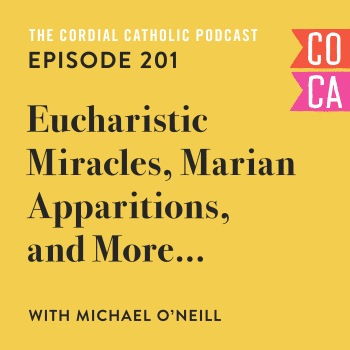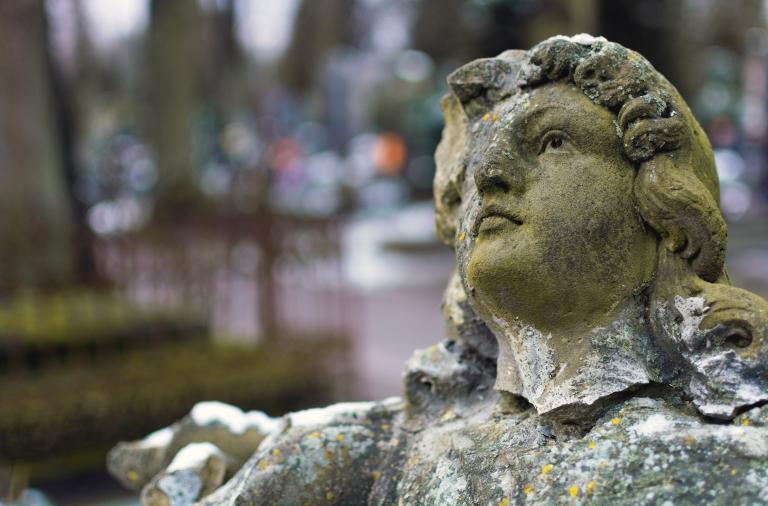
As a non-denominational evangelical exploring the Catholic faith praying to the saints was one of the very first topics I explored.
In the nominally Pentecostal church of my youth we drew a distinct line around anything we felt might cross into the territory of worship. We were, you might say, obsessed with avoiding making anything into an idol. Our church worship space was adorned with nothing more than a simple wooden cross, off to the side.
Needless to say, we didn’t post pictures, let alone talk about the saints.
It was, in hindsight, a very admirable kind of piety.
Like Puritans or the Amish, we wanted to avoid even the suggestion of sin. Catholics, ironically enough, call this the “near occasion” of sin; we didn’t have a term for it as Pentecostals. We didn’t want to get anywhere close to committing a sin, so we stayed as far away as possible. And, goes the logic, if we didn’t have any images of anything then we couldn’t fall prey to worshipping them.
But this idea, this obsessive avoidance of images, isn’t even biblical. Remember, God commanded Moses to make the image of a serpent to go atop his staff. And what about the elaborate decorations on the Ark of the Covenant? Wouldn’t the Israelites fall prey to worshipping that?
As my understanding of what consisted of “worship” of images and idols began to erode so did my questions around the “worship” of the saints.
Catholics don’t worship the saints.
Catholics, in concert with the Early Christian Church and Christians down through history, believe that the Church of Christ extends beyond death. It’s simple, really: if Christ “tore the veil” between life and death by coming and dying for us and rising from the dead, and if, as the New Testament tells us, there is no longer death for those in Christ, well then, dead Christians aren’t really dead.
Instead, deceased Christians live on with Christ in eternity.
And if deceased Christians are still alive with Christ then they can, with Christ, pray for us.
This is the simple, logically reality of what we Catholics call the “Communion of the Saints.” And it is, historically, what Christians believed without wavering since the beginning of the Christian Church. Indeed, history tells us that the very first Christians would appeal to the prayers of their predeceased brothers and sisters believing that because they lived in Christ, and died in Christ, they were able to hear these prayers of the faithful on earth and to pray for them. And how much more powerful are the prayers of those in the presence of God? In Heaven?
But what if we fall into the old trap of idol worship? What if the saints begin to take the place of Jesus?
I recently had the pleasure of sitting down with my good friend JonMarc Grodi to talk about this very topic and he said something which I had never heard before. It was shocking.
He said, “Worship is like murder.”
And he’s right.
JonMarc unpacked it eloquently like this. You can’t murder someone by accident, it requires intention and, depending on the degree, some serious planning. In the same way, says JonMarc, you can’t worship someone by accident.
Worship, like murder, requires intention.
Yes, we can let things crowd God out of the way but this is true for ordinary, everyday things as well. I am too tired to pray so I watch Netflix instead. I neglect showing my neighbour kindness because I’m too busy and have to mow the lawn. I could make it to Mass and not sleep in but I was out so late last night.
We can crowd God out with all kinds of things but we don’t need to worry about worshipping unintentionally because worship requires intent.
When we pray to the saints—which merely means we are “speaking” to the saints, asking them to pray for us—we are not confusing them with God, we are not worshipping them, because that would require an intentional act. Instead, we ask the saints to pray for us because they are our friends, our mentors, our examples of how to live holy lives and they are with God right now in eternity.
The act of drawing a line around sin is a noble one. We ought to stay as far away from sin as possible. But to jettison our ancient, venerable practice of talking to and living in relationship with the saints is an unfortunate and lamentable byproduct of going a bit too far. The saints, our predeceased brothers and sisters in Christ, can and want to pray for us and alongside us and it’s our loss if we don’t access that deep, deep pool of grace that’s waiting there and available to plumb.
And we can all stop worrying about accidentally committing murder in the process.
If you’re interested in hearing more on this topic, listen to The Cordial Catholic Podcast below,


